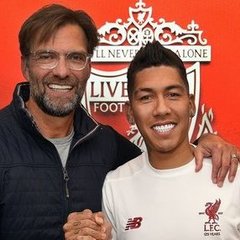-
Sign up for free and receive a month's subscription
You are viewing this page as a guest. That means you are either a member who has not logged in, or you have not yet registered with us. Signing up for an account only takes a minute and it means you will no longer see this annoying box! It will also allow you to get involved with our friendly(ish!) community and take part in the discussions on our forums. And because we're feeling generous, if you sign up for a free account we will give you a month's free trial access to our subscriber only content with no obligation to commit. Register an account and then send a private message to @dave u and he'll hook you up with a subscription.
The Special One: The Dark Side of Jose Mourinho
-
Recently Browsing 0 members
- No registered users viewing this page.
-
Who's Online 181 Members, 5 Anonymous, 867 Guests (See full list)
- Judge
- Preston Red
- eric rotterdam
- Muy Guapo
- Reckoner
- Torvald Utne
- whtwht
- AHA
- paveld
- Skidfingers McGonical
- Mark M
- Gruntfuttock
- Dave D
- Trevorjc
- TheHowieLama
- noid
- No2
- El Rojo
- Freddo
- Tj hooker
- etho
- Jhinge Machha
- Spy Bee
- magicrat
- Carradona
- johnsusername
- James1975
- Joey8FrogsLegs
- Stouffer
- Tenfolder
- gumps
- VERBAL DIARRHEA
- Boomer
- Marko121
- tokyojoe
- BigGamesJames
- Huevón
- red_herring
- Moonraker
- Harry's Lad
- George Costanza
- Geoff Woade
- 3 Stacks
- timo1966
- Denis Šećković
- Daisy
- David Keelaghan
- NoelM
- Creator Supreme
- Thomo123
- Red Shift
- Planet Origi
- BeefStroganoff
- Moctezuma
- amli
- chrisbonnie
- Edward.
- Mook
- Red Phoenix
- CaliRed
- Mudface
- TD_LFC
- carallo
- Simbo
- Mil-ing Around
- Moo
- Em City
- foamer simpson
- Jairzinho
- Redder Lurtz
- abunawirah
- mike23
- Carra_is_legend
- Jennings
- Lovely Cushioned Header...
- Arniepie
- bossy
- biglad
- Rushies tash
- Caramac
- Section_31
- Josef Svejk
- Carvalho Diablo
- littletedwest
- clockspeed
- Heinrici
- Jarvinja Ilnow
- Elite
- Arnaud
- John102
- The wanderer
- Rick Sanchez C-137
- Juniper
- The Guest
- s(k)aturation
- Karl_b
- Bingo
- Bolo locks
- Colonel Bumcunt
- RedRob
- XabiA
- Pidge
- Wicket
- Captain Willard
- Saintslfc13
- Special K
- suzy
- Funkasy
- joeyk
- Red74
- Reds4Life
- Kamma
- Rico1304
- diamondjoe
- YorkshireRed
- dirk grout
- Larks
- skend04
- redinblack
- AngryOfTuebrook
- Jack the Sipper
- KMD7
- bizzle10
- Space Bandit
- Scottish Steve
- dylstar
- Aventus
- Mike D
- Evelyn Tentions
- Tony Moanero
- Ashberry
- Smell The Glove
- Turkish Delight
- Megadrive Man
- chauncey
- Scooby Dudek
- SilverSong
- Street Preacher
- Jordy Brouwer
- phughesie
- rafaisgod
- Heinze
- Paulie Dangerously
- Ocja
- ottawa_lfc
- Kepler-186
- Fugitive
- KevieG
- Champ
- TheDrowningMan
- markcd
- Double 86
- angie
- SHG
- ralph
- Manny
- dcl
- Dapower
- Baltar
- KingLuis
- Vector Sigma
- Jimmy Hills Chin
- TheBitch
- polymerpunkah
- Leyton388
- Rocky Sullivan
- DJLJ
- andrew78
- JohnnyH
- Lee909
- devilsadvocate
- Chris
- an tha
- HolyHank
- craig burnett
- matty210
- LFC 6 Times
- Sparky
- Blb
- Salou
- M_B




Recommended Posts
Join the conversation
You can post now and register later. If you have an account, sign in now to post with your account.